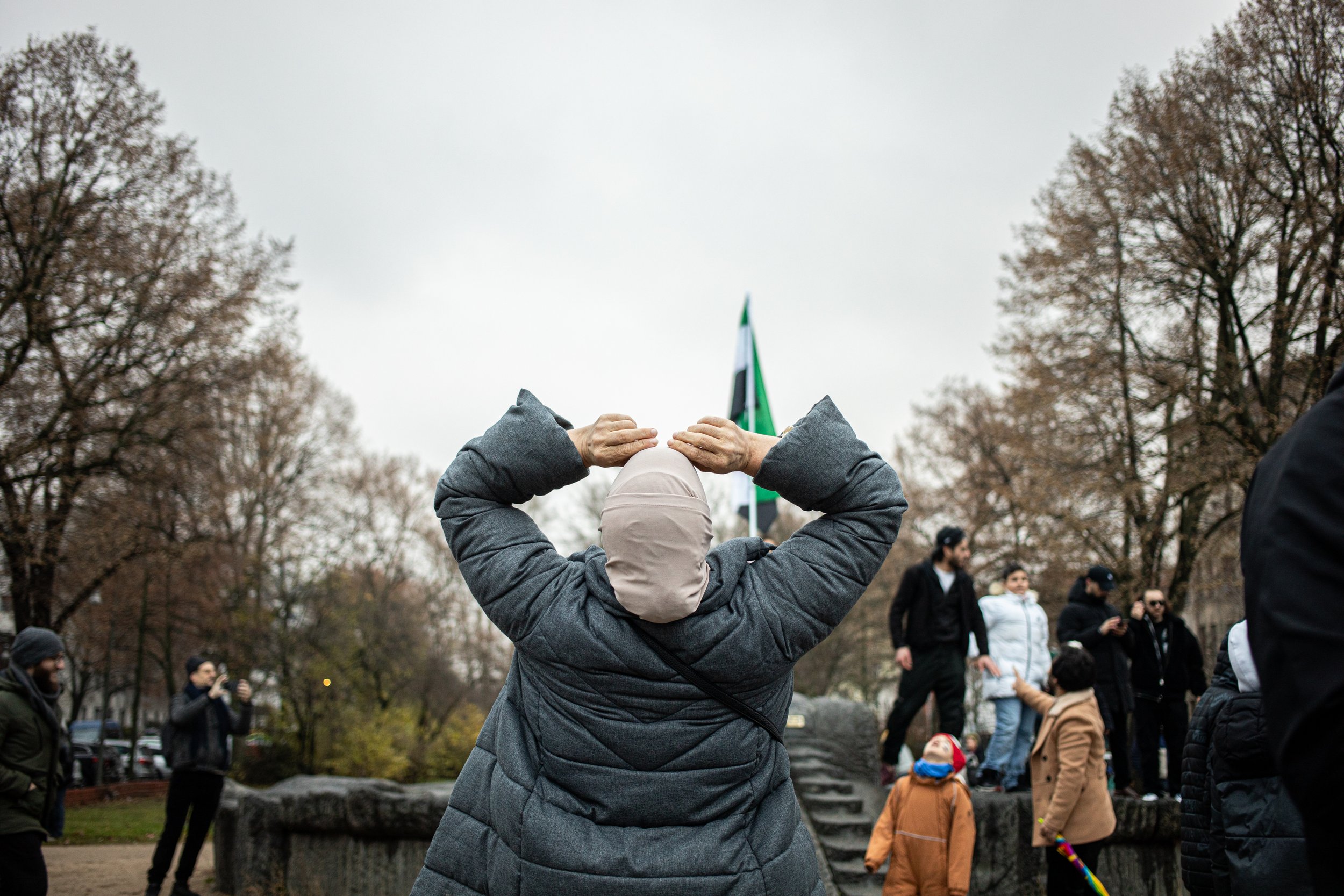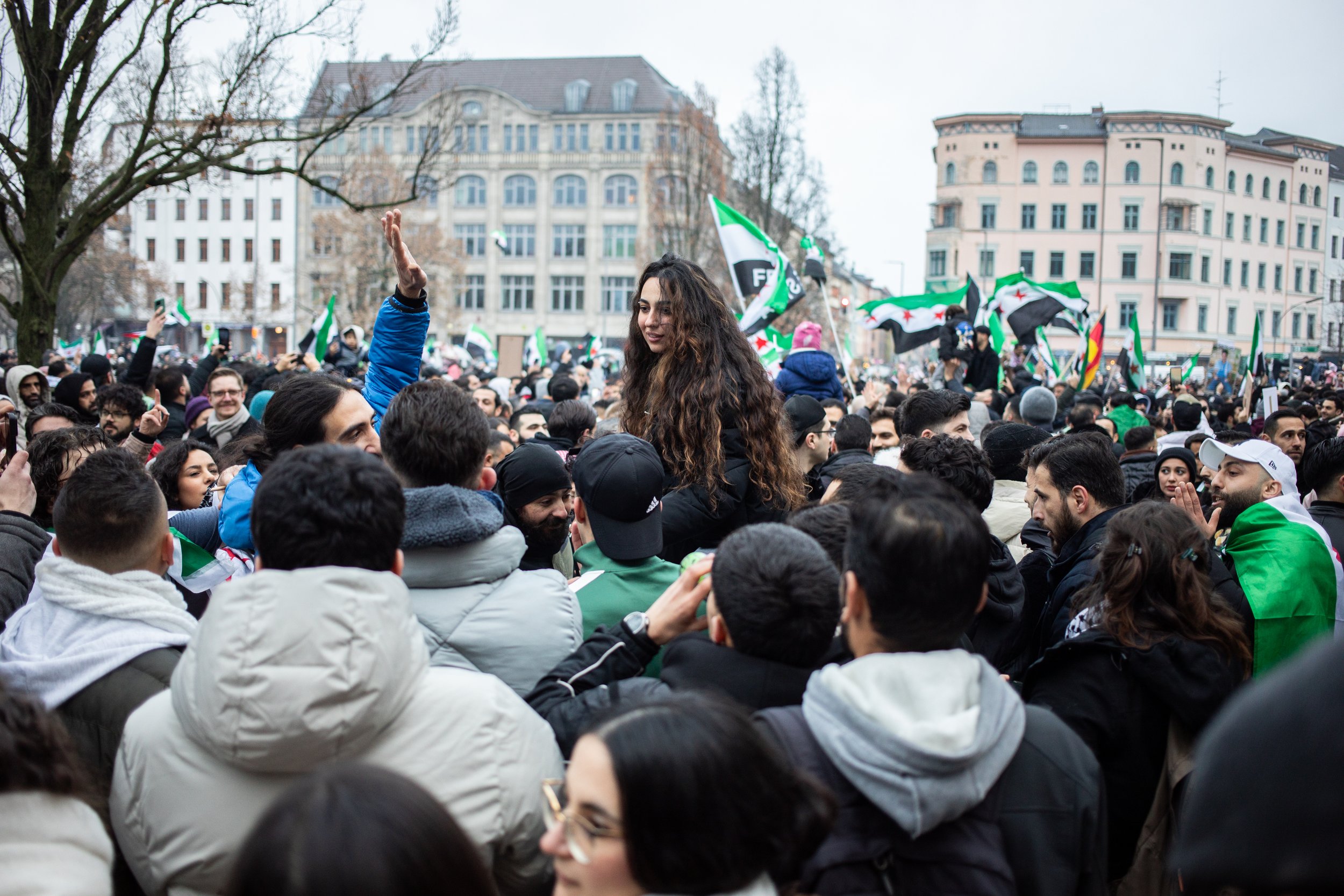The fall
Thousands of people convened at Oranienplatz, Berlin, to commemorate the overthrow of the al-Assad regime after more than 53 years of autocratic governance. Demonstrators also expressed solidarity with Palestine and Kurdistan.
In the immediate aftermath of Bashar al-Assad's ousting, Germany, which hosts the most significant Syrian diaspora outside the Middle East, announced a suspension of asylum processing for Syrian citizens. This decision was attributed to the uncertain political landscape in Syria, rendering asylum determinations "on shaky ground."
Concurrently, Israeli forces advanced into Syrian territory, seizing portions of the Golan Heights and enforcing curfews on local populations. Israeli military operations also targeted weapons depots in southern Syria and near Damascus, aiming to prevent these assets from falling into the hands of rebel groups that contributed to Assad's removal.
In northern Syria, the Turkish-backed Syrian National Army intensified attacks on the town of Manbij, seeking to capitalize on the power vacuum post-Assad. These forces targeted the Manbij Council office with drone strikes.
Amid these hostilities, the Kurdish Red Crescent initiated a major emergency aid campaign to support tens of thousands of displaced individuals in the Shahba region of Afrin and Tel Rifaat in northern Syria. This effort underscores the ongoing challenges Rojava faces and its democratic experiment in the face of continued attacks.
These developments highlight the complex and volatile situation in Syria, with regional and international actors navigating the power vacuum left by Assad's departure.



















